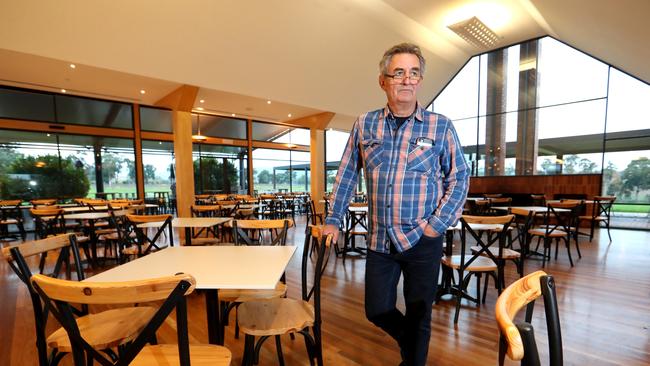Coronavirus: Innovation lifts business out of the cellar
Isolation has forced adaptation and sparked innovation for the struggling tourist industry.

Australia’s tourism industry has been one of the hardest hit by the coronavirus pandemic, with many businesses in the throes of “woe and disillusionment” after losing nearly 100 per cent of revenue.
For some, isolation has forced adaptation and sparked innovation in the way they create, sell and market their products in order to make ends meet.
Brisbane’s Riverlife, which typically rents kayaks, has expanded into bicycle hire during COVID-19 isolation; the Australian Reptile Park is broadcasting twice daily live streams of behind the scenes action; and Mogo Wildlife Park on the NSW south coast, which narrowly escaped destruction during this summer’s bushfires, is posting a regular #AskAZookeeper segment on social media.
Rochford Wines, in the Yarra Valley on the outskirts of Melbourne, has transformed from a cellar-door restaurant and concert venue to a grocery store and home delivery service.
Owner Helmut Konecsny, who has been at the helm of the family-run businesses for 20 years, said the pandemic had been devastating for his industry but had forced them to get creative in finding new income streams and ways of getting their product out there.
“The bushfires had already slowed down the tourists from January and the coronavirus has forced us to close our cellar door, restaurants and venue capacities,” he said. “In April, we were down 70 per cent of typical turnover and we’ve lost about 50 per cent of our revenue for the year, so it’s been a tough time.”
Rochford Wines has borrowed a food supplier truck and is using that to deliver wine and hampers across the state, as well as freshly cooked meals to locals.
Mr Konecsny said the pandemic had given his business a chance to learn more about their customers and teach the staff they were able to keep more skills, which he hoped would continue when life returned to normal.
Simon Westaway, executive director of the Australian Tourism Industry Council, said while it was promising some businesses had been able to adapt and survive during the pandemic, the overall situation for the typically $150bn a year industry was “dire”.
“It’s a unity ticket of woe and disillusionment,” he said.
“The hard and fast reality is we’re seeing downturns upwards of 95 per cent. In some states, over two- thirds of businesses are closed and some may never recover.”
Based on ATIC data, 45,000 tourism jobs have been lost or displaced in Tasmania, 95 per cent of existing tourism business has been lost in South Australia and two-thirds of tourism-related businesses had closed in Western Australia because of the pandemic.
“Many businesses have had no visitors for a long period of time now, especially those that had the double whammy of being directly impacted by the bushfires as well,” Mr Westaway said.



To join the conversation, please log in. Don't have an account? Register
Join the conversation, you are commenting as Logout